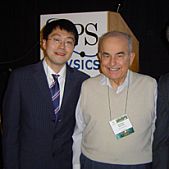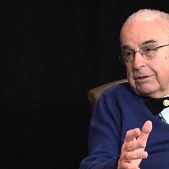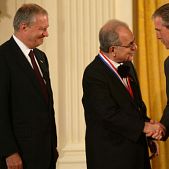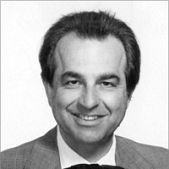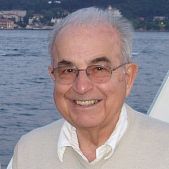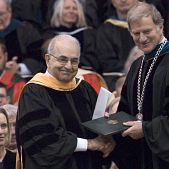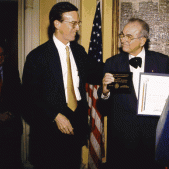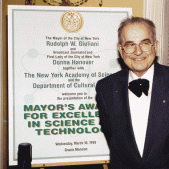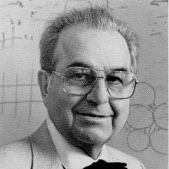
A top-class Greek scientist amongst the most distinguished Chemical Engineers in the world
Born in the late 20’s, and brought up by a well established family of Athens, little could the -then- young Andreas Acrivos imagine on how things would work out for him. Because he could never foresee that in a few decades time, he would grow to become a symbol in the field of Mechanical Engineering and Fluid Mechanics, managing to teach in America’s top universities, and to earn so much respect and so many distinctions through his work.
Andreas Acrivos was born in 1928, in the area of Phychico, a suburb of Athens where he went to grammar school, and later on, to the Athens College, a high-standard High school at the time. His father was the manager and part owner of a textile factory, while his mother, through her brothers, was related to a very prominent family of shipping brokers throughout the Balkans. His life seemed to be an easy one for him, if it hadn’t been for the war, followed by the German occupation. It was these events that made him think the only place he could continue with his studies were the United States. Nevertheless, he always kept in mind to return one day to his native country to build an industry. Instead, he became an integral part of American academics and was instrumental in developing the Chemical Engineering programs. Always pushing his research beyond the formal training he received, he sought to attract the most talented and ambitious students, and served as an example to many young Greeks who chose to follow in his footsteps.
Interestingly enough, Acrivos hadn’t always dreamt about becoming a Chemical Engineer. He received a Bachelor’s degree from Syracuse University in 1950, a Master’s degree from the University of Minnesota in 1951, and a Ph.D. from the University of Minnesota in 1954 (all in Chemical Engineering). Academic experience was next, when from 1954 to 1962 he was a professor (Instructor, Assistant Professor, Associate Professor) at the University of Berkeley, California. Next station: professor at Stanford University (1962-1988), and Professor Emeritus from 1988. Also in 1988 comes his next challenge: he went to City College of New York as one of New York State’s Albert Einstein Professors of Science and as the director of the Levich Institute.
Acrivos is considered to be one of the most distinguished Chemical Engineers in the world, and one of the greatest fluid dynamicists of the 20th century. He was the PhD thesis advisor of more than 50 students many of whom have developed international reputations based on that work. He has published about 220 papers, for which there are more than 10.500 citations – a very impressive number for the field of Fluid Mechanics. More specifically, his research on the flow of viscous fluids made it possible to model, analyze and engineer chemical and fluid processes – with applications in numerous industries, including petroleum recovery and microelectronics.
Amongst his numerous distinctions and awards we should definitely mention the following: member of the National Academy of Sciences (NAS), member of the National Academy of Engineering (NAE), and Fellow member of the American Academy of Arts and Sciences. In 2011 he was elected as a corresponding member of the Academy of Athens, in the department of Science. As far as his medals are concerned, on the 12th of June 2002, he was honored with the National Medal of Science, presented at the White House by the American President himself. He has also been awarded the Bingham Medal from the Society of Rheology (1994), the G.I. Taylor medal from the Society of Engineering Science (1988), and the Warren K. Lewis Award from the American Institute of Chemical Engineers (AlChe) in 1984. For some, he is probably the most distinguished Chemical Engineer and Fluid Dynamicist in the world.

